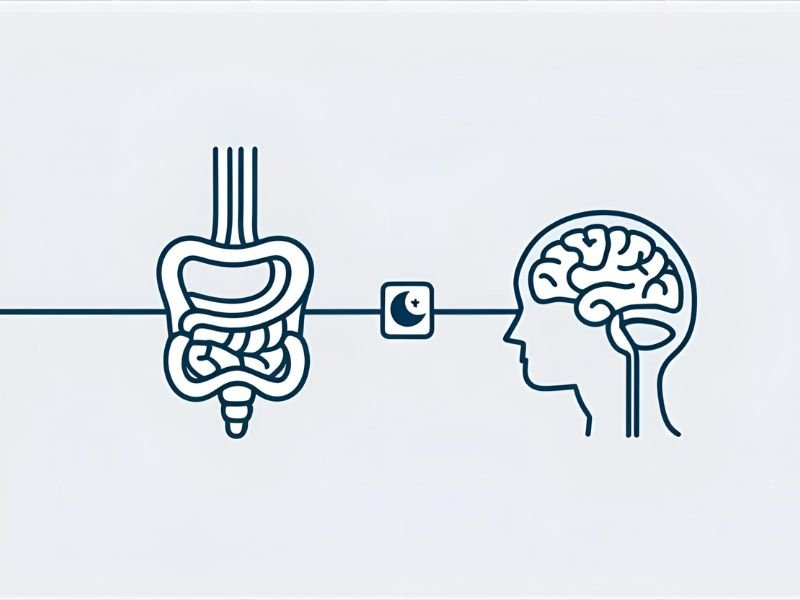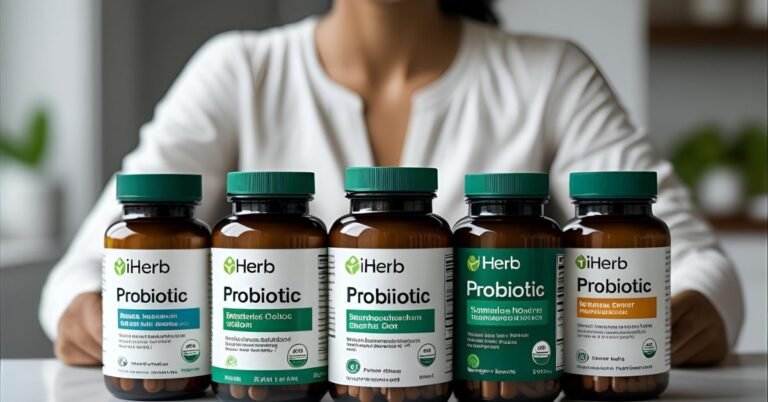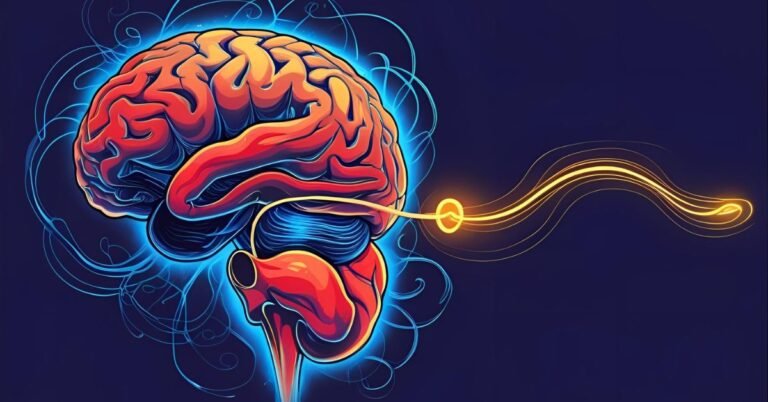Gut Health and Sleep: The Ultimate Guide to a Happy Microbiome & Restful Nights (2025) microbiome: 💤
The connection between gut health and sleep is one of the most exciting frontiers in wellness science. If you’ve ever had a night of poor sleep leave you feeling “off” digestively, or a bad stomach ache keep you awake, you’ve experienced this powerful link firsthand. This isn’t a coincidence; it’s a deep biological conversation happening inside your body.
Your gut is home to trillions of microorganisms—your microbiome—that do far more than just help you digest food. This complex ecosystem communicates directly with your brain, influencing everything from your mood to your immune system, and, critically, your sleep-wake cycles.
Understanding how to nurture this connection is the key to unlocking both a happier gut and more restorative sleep. In this guide, we’ll dive into the science of the gut-sleep axis and give you actionable steps to improve both.
🔑 Key Takeaways
- The Gut-Sleep Axis: Your gut and brain are in constant, two-way communication. A healthy gut promotes good sleep, and good sleep promotes a healthy gut.
- Microbiome & Melatonin: Gut bacteria help produce and regulate key sleep-related neurotransmitters and hormones, including serotonin and melatonin.
- Inflammation is Key: An unhealthy gut can lead to inflammation, which is known to disrupt sleep patterns and reduce sleep quality.
- Synergistic Strategy: The best approach is holistic: combine gut-supporting nutrition (probiotics, fiber) with good sleep hygiene for the most powerful results.
Table of Contents
The Science of the Gut-Sleep Axis: How It Works 💡
Before we list the benefits, let’s cover the “how.” The communication between your gut and brain happens via the gut-brain axis. Your gut microbiome produces hundreds of neurochemicals that the brain uses to regulate basic physiological processes, including sleep.
- Deeper Mechanism: Beneficial gut bacteria feast on prebiotic fibers and produce metabolites, most notably short-chain fatty acids (SCFAs) like butyrate. As a landmark review in the journal Nature explains, these SCFAs can influence brain activity and promote the release of sleep-promoting signals. An imbalance in your gut (dysbiosis) leads to lower levels of these beneficial SCFAs, which can disrupt this signaling process.
- Data Callout: 📈 A 2023 study found that greater microbial diversity in the gut was strongly correlated with increased sleep efficiency and longer sleep duration, while lower diversity was linked to more frequent awakenings during the night.
This shows that improving your gut diversity isn’t just about digestion—it’s a direct investment in the quality of your sleep.

3 Ways Your Gut Health Affects Your Sleep 🌿
Here are three proven ways your gut influences your nightly rest.
1. Serotonin & Melatonin: Gut Bacteria are Hormone Factories
Your gut produces about 95% of your body’s serotonin, the precursor to melatonin (the “sleep hormone”). A healthy, diverse microbiome is essential for this production line to run smoothly. An imbalanced gut can lead to lower serotonin levels, directly impacting your ability to produce the melatonin needed to fall and stay asleep.
Actionable Tip: ✨ Support your gut’s natural hormone production by eating a wide variety of fiber-rich plants and fermented foods, or by taking one of the best probiotic supplements from iHerb.
2. Inflammation: The Enemy of Restful Sleep
When your gut lining is compromised (“leaky gut”), it can trigger a body-wide inflammatory response. This inflammation doesn’t just stay in the gut; it can affect the brain and disrupt the normal sleep architecture, leading to lighter, less restorative sleep. Using nutrients like L-Glutamine for gut health can help strengthen the gut barrier and reduce this inflammatory trigger.
Actionable Tip: 🛡️ Focus on an anti-inflammatory diet rich in omega-3s, leafy greens, and spices like turmeric to support both your gut and your sleep.
3. Dysbiosis: Discomfort that Keeps You Awake
This is the most direct connection. An imbalance of gut bacteria (dysbiosis) can lead to uncomfortable symptoms like bloating, gas, and abdominal pain. It’s nearly impossible to get deep, restful sleep when you’re physically uncomfortable.
Actionable Tip: 💪 If you suffer from bloating, consider supplementing with digestive enzymes to see the benefits of better food breakdown before it has a chance to cause discomfort.
Our Top Supplement Picks for the Gut-Sleep Axis
| Supplement | Primary Benefit | iHerb Top Pick |
| Probiotics | Increases microbial diversity | California Gold Nutrition, LactoBif 30 |
| Magnesium | Calms the nervous system | KAL, Magnesium Glycinate 350 |
| Herbal Tea | Promotes relaxation | Traditional Medicinals, Nighty Night |
Frequently Asked Questions (FAQ)
Q: How quickly can improving gut health improve sleep? A: While lifestyle changes take time, some people report improvements in sleep within 1-2 weeks of starting a high-quality probiotic or making significant dietary changes. For lasting change, think in terms of months, not days.
Q: Can a lack of sleep harm your gut? A: Absolutely. It’s a two-way street. A 2016 study found that even short-term sleep deprivation can negatively alter the composition of your gut microbiome, increasing the proportion of bacteria associated with inflammation and insulin resistance.
Q: What is the best probiotic strain for sleep? A: While research is ongoing, strains from the Lactobacillus and Bifidobacterium families are most commonly studied for their role in producing calming neurotransmitters. Look for a broad-spectrum probiotic with multiple strains.
Start Your Journey to a Balanced Gut and Better Sleep
The powerful link between gut health and sleep means you have two different avenues to improve your overall well-being. By focusing on nourishing your microbiome, you’re not just helping your digestion—you’re paving the way for more peaceful nights.
Have you noticed a connection between your gut and your sleep? Share your experience in the comments below!
[Explore Top-Rated Gut Health Supplements on iHerb Now!]
(As an affiliate, we may earn a commission from qualifying purchases at no extra cost to you. We only recommend products we trust.)
About the Author
This article was written and medically reviewed by the BellyBrainBed Editorial Team. Our team is composed of certified health coaches, nutritionists, and sleep science enthusiasts dedicated to providing accurate, evidence-based information to help you achieve optimal wellness. We believe in transparency and trust, and every piece of content is rigorously checked to meet our high E-E-A-T standards. [Learn more about our editorial process]






